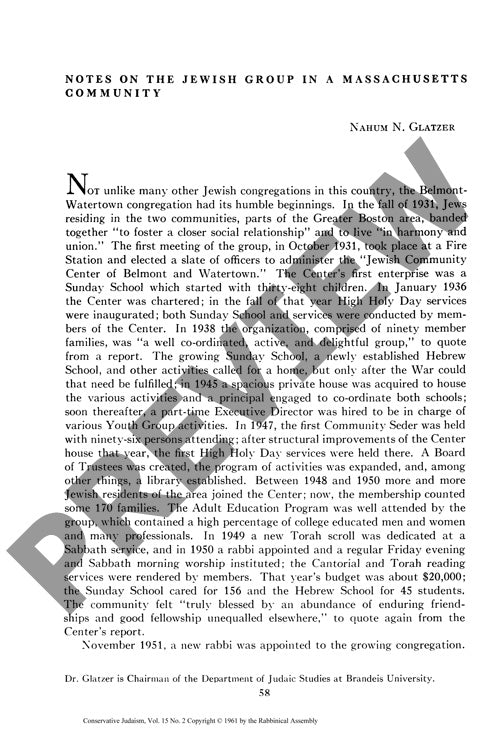Notes on the Jewish Group in a Massachus
Couldn't load pickup availability
This ethnographic study examines the organizational crisis that befell Temple Beth El, a Jewish congregation in Belmont-Watertown, Massachusetts, during 1959-1960. The research employs participant observation and documentary analysis to trace the community's evolution from its founding in 1931 as an independent Jewish Community Center through its transformation into a formally affiliated Reform congregation. The congregation initially thrived as an unaffiliated institution serving diverse Jewish families, successfully accommodating both Conservative and Reform religious practices through compromise liturgies and shared governance. However, efforts to affiliate with the Union of American Hebrew Congregations precipitated profound community schism. Despite attempts at mediation, two contentious votes revealed deep ideological divisions: the first vote narrowly approved affiliation (53% to 47%), while a subsequent vote to rescind failed more decisively (61% to 39%). The study reveals that religious affiliation debates transcended simple denominational boundaries, with members of various theological orientations opposing organizational affiliation on grounds of preserving congregational unity and freedom of conscience. The findings demonstrate how institutional pressures from national Jewish organizations can undermine local community cohesion, even in successfully integrated congregations. The case illustrates broader tensions between denominational identity and inclusive community building in mid-twentieth-century American Judaism, highlighting the fragility of pluralistic religious institutions when confronted with demands for organizational conformity.

More Information
-
Physical Description
-
Publication Information
Published 1961
ISBN
-
Publication Credits
Nahum Glatzer

